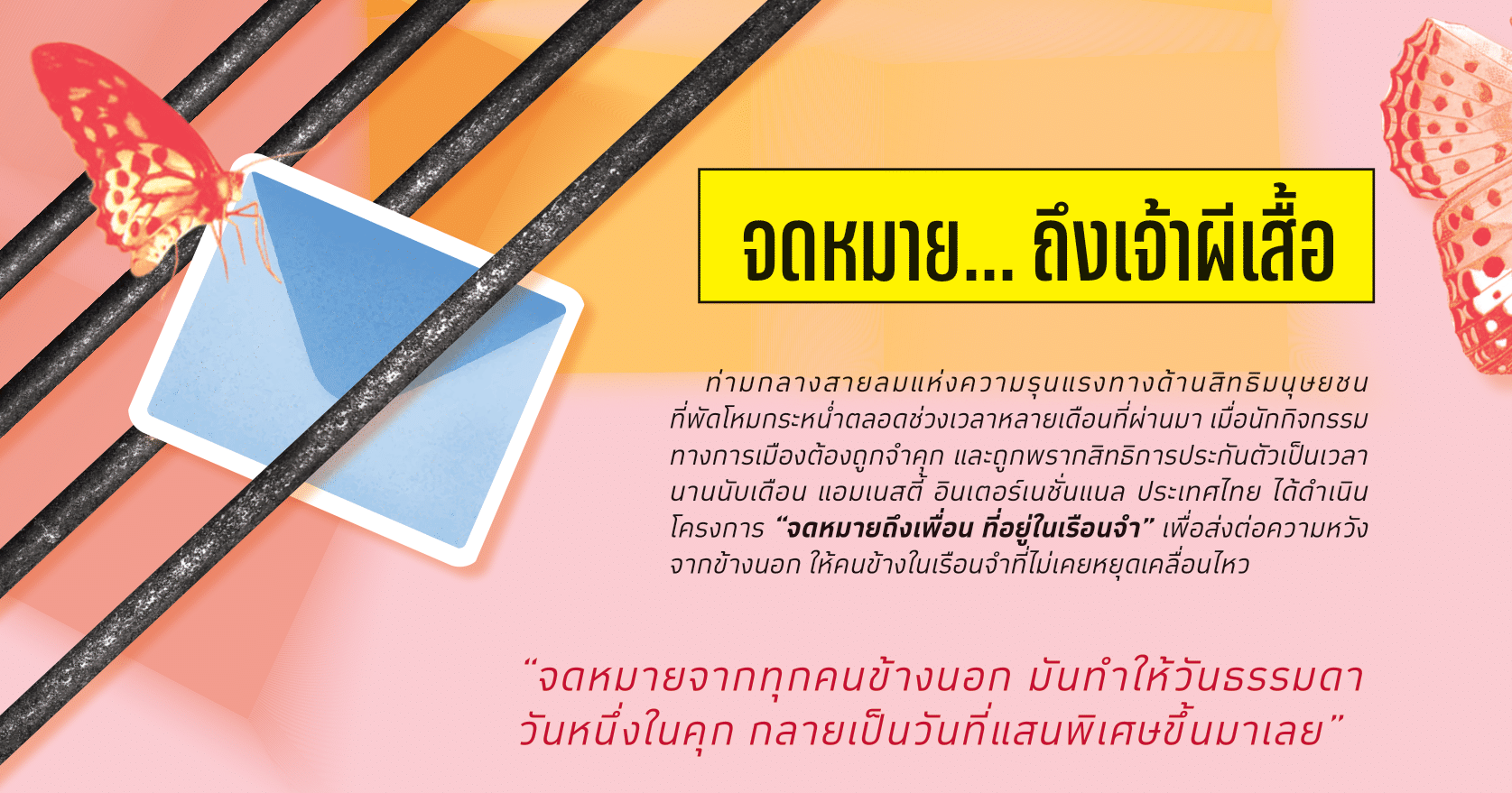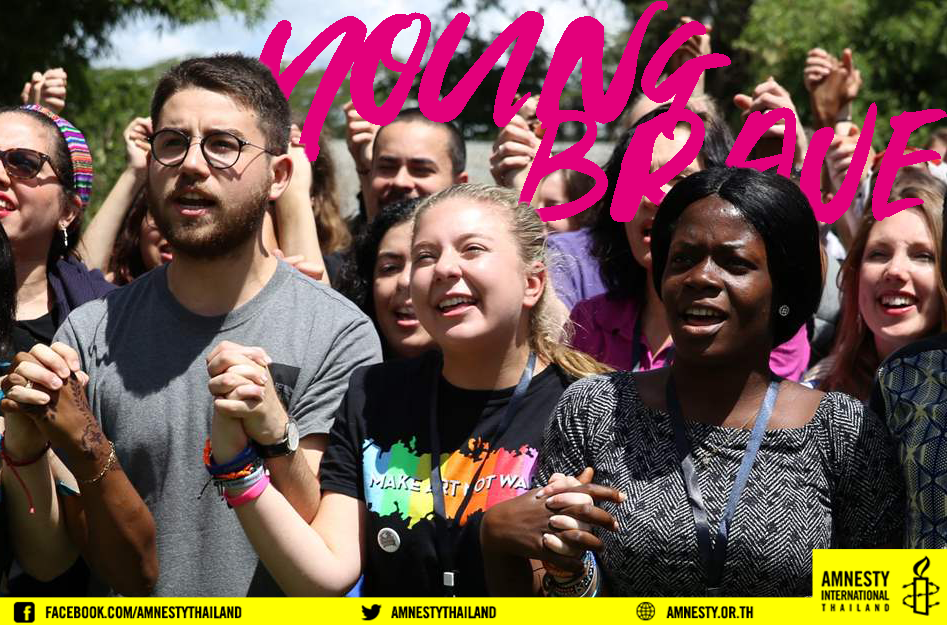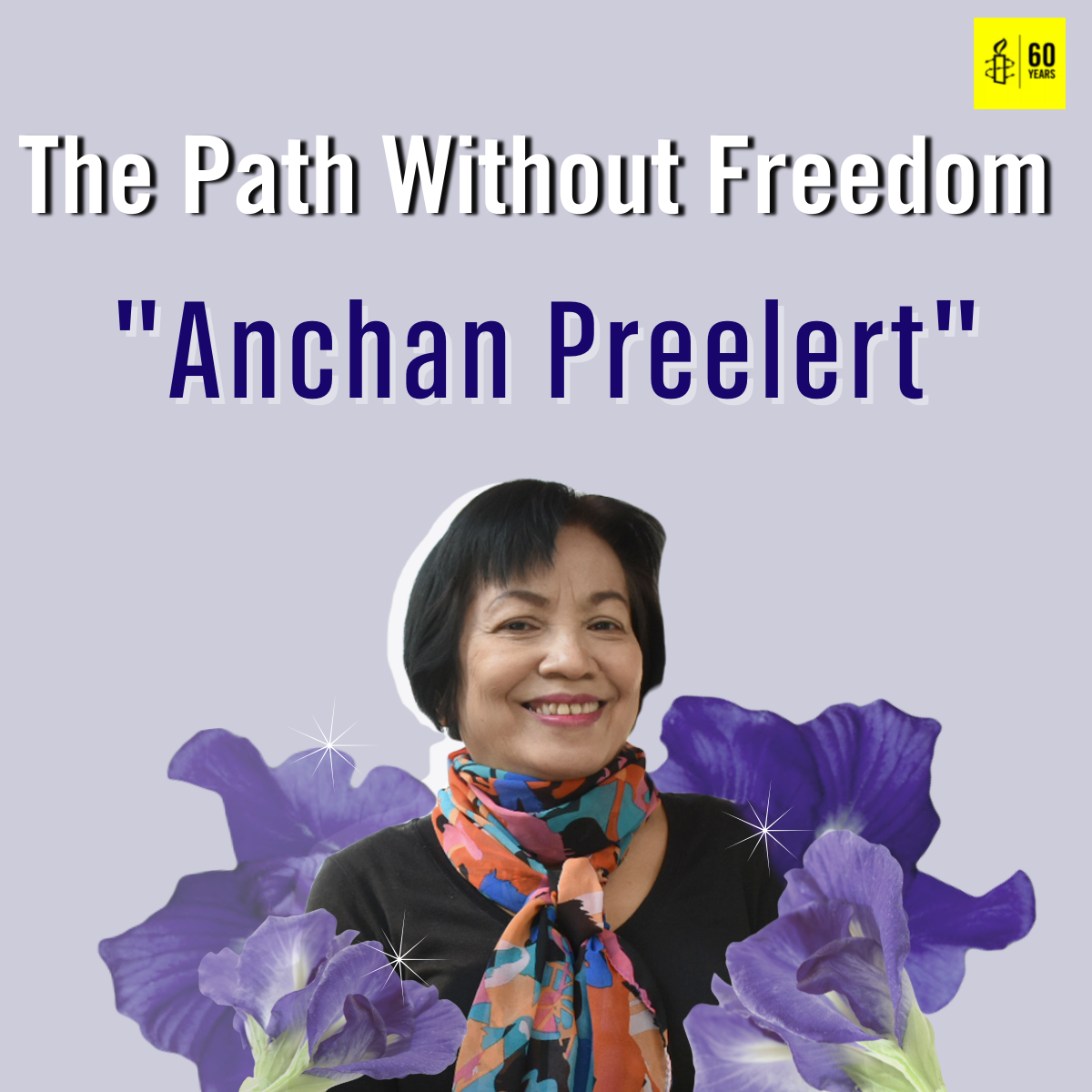Dear the butterflies behind bars
29 July 2564
Amnesty International Thailand
Amidst the violations of human rights in the past several months, political activists have been imprisoned and deprived of their rights to bail, Amnesty Thailand has implemented the project "Letter to a friend in prison" to pass on hope from outside and let the people inside the prison know that they're not alone.
Since the massive political movement in 2020, the government has focused on using repressive laws such as the Public Assembly Act, the Communicable Disease Act in suppressing participation in peaceful demonstrations. These demonstrations are a result of the governmental failure after the NCPO seized power. These peaceful demonstrations against a failed state have resulted in the arrest of political leaders charged under section 112 of the Criminal code.
However, the arrests of the leaders and participants have also been criticized by the public and international audiences. The legitimacy and transparency of the arrests, the abuse of state power, and the denial of bail were questioned in accordance with fundamental freedoms and international instruments.
Amnesty International Thailand has set up an event to invite people to write letters, petitions, and encouraging messages to send to those political prisoners. Through the campaign #FreeOurFriends #FREERATSADON, we have set up mailboxes in different places offline and online to allow outsiders to send encouragement to the people inside. Despite some letters being censored from the guards, a wave of the hopeful letters has reached the hands of the activists in prison
In the midst of a pandemic, people in the condensed prison cell experience poor living standards, routine lifestyle, lack of access to information from the outside. Therefore, it is common for detainees to feel isolated and empty. But then a candle of hope was ignited through the letters of the outsiders who never stopped hoping and believing in the ideology and philosophy that the activists had brought up.
“Letters from supporters outside turns an ordinary day in prison into a very special day,” said Chatuphat Boonpattararaksa or Pai Dao Din Tell us after leaving the prison on April 23. Somyot Prueksakasemsuk added, “The letter inspires us to endure the evil in it [Prison and Criminal Justice System]”.
Pai said that the letters have to go through a process from the Department of Corrections before reaching his hand.
“When a letter comes in a huge pile, the guards would always tell me that my fan clubs are sending letters. After receiving the letters, everyone would take it and go read them beside their bed. Getting a letter made one ordinary day in such a terrible place so much more beautiful. The conditions of the prison shouldn’t be experienced by anyone”
Somyot Prueksakasemsuk, who was imprisoned for a total of 74 days, said getting the letter from outside had helped him endure the hardships the prison had.
“I understand that the letters we have received are not from everyone, some letters and messages are censored by the authorities and those letters will not reach me,'' said Somyot.
“But I am delighted and very glad to receive letters from the outside. It inspires us to endure all the bad. The pressure, restrictiveness of the prison, and the lack of news and information has resulted in a feeling of loneliness and isolation from the outside world, the letter has encouraged us to know that we are not alone, we still have people to support us, to be friends, to be in our fights together for our freedom”
From the arrest at the beginning of the year, political activists arrested for political involvement or peaceful assembly were deprived of their bail rights before the trial. The release of the political arrest is on the basis of international legislation to protect the fundamental freedoms and human dignity of a person.
“The prison is where the offenders are held. But they are not wrong, how can they be imprisoned? They are citizens who want better change for their country, so they only express and voice their opinions to the country.” Somyot concluded.
The letter from Amnesty International traces back to 1961 in Amnesty's first chapter. Peter Beneson, a British lawyer who had long been active in the labor rights and equality movement read about two Portuguese students who were sentenced to seven years in prison for raising a glass of liberty in a bar. This took place while Portugal was under the rule of Antonio de Oliveira Salazar, a former prime minister during the Estado Novo authoritarian regime as a result of the coup d'état of 28 May 1926. It is all reiterated to Amnesty members that a letter from outside gives hope to the people behind bars.
Upon reading this news Beneson sent an article to David Astor, the editor of The Observer newspaper, titled "The Forgotten Prisoners". Beneson included a section that invites readers to write letters of encouragement to prisoners of political or religious convictions. The article received an overwhelming response from readers who sent over a thousand letters of support in a single month.
"The Forgotten Prisoners" has been the start of many campaigns of letter writing to political prisoners. In Thailand, throughout history, there are dozens of political prisoners, both have been released or still have a lawsuit. Especially after the events of October 6, 1976, Amnesty was known in Thailand from the campaign "Prisoners of conscience" where hundreds of thousands of letters were sent from around the world to the Thai government and the Royal Secretariat demanding the release of students and people arrested in the incident.
The long history of writing letters allows us to see that hope will never be lost behind bars. As long as we believe in the power of freedom and send hope to the people behind the bars and everywhere that support is needed. The power of letters sent to "our friends" has become a candle of hope that shines through the bars giving warmth to all people.




